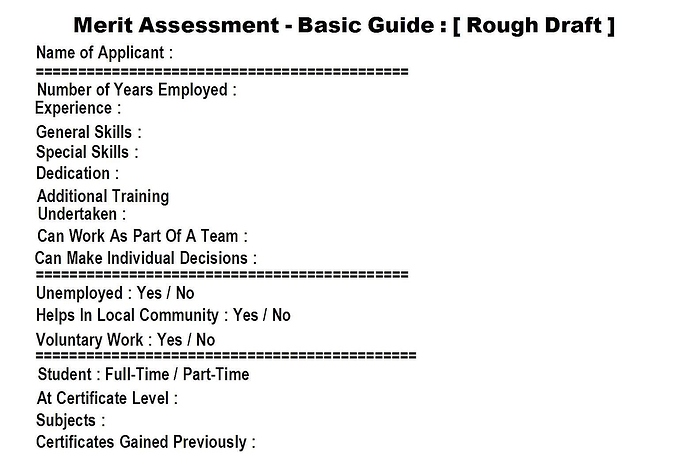OK so, imagining that there was an online issue-voting platform for citizens to participate democratically, how would such a platform look?
Well, as I’ve already said, it would need to be easily navigatible:
Gov } Take Part } Area (Education, Economy, Health, etc.)
Once we are in the area we have the sub-categories:
Education } National Curriculum / Teaching Methods / School Places / Higher Edcuation / etc.
Which could of course be split further into more sub-categories until we arrive at a specific issue or ‘Problem’. At the ‘Problem’ stage, this is where I imagine the discussion aspect to come in. On this platform, the problem or issue would be highlighted, either by Gov themselves or Citizens.
- Debate on the problem itself - particularly if put forward by a citizen (who would have to put forward a pretty convincing explanation) - is this actually a problem? Do we need to create a solution?
Assuming the outcome of the debate is ‘Yes’
-
Proposed Solutions. Here the citizens and gov have chance to put forward their draft solutions to the problem, with accompanying explanations. Set out simply as Solution 1, 2, 3 etc.
-
Comments and feedback on solutions - what would work, what wouldn’t? Solutions analysed from various angles - Effectiveness, Practicality, Moral/Ethical considerations (People Principle), Health & Safety, Socio-economic context and potential wider effects etc.
At this stage, ‘Administrators’ and the ‘Research Team’ would supervise debate, ensuring forum rules are adhered to and to make sure the discussion is constructive, ‘facts’ are checked, statistics are put in context etc. (assuming the public don’t beat them to it). Where ideas cross over, synthesizing is encouraged leading to:
At this stage we may have disregarded or merged several ideas and we can ask: Can ideas be synthesised further? Can further improvements be made? If the answer is no, then people can vote on their preferred solution. If there is only one remaining solution, then this gets adopted as Government policy.
So, how is this linked to Merit?
On such a platform, every citizen would need to have an active log-in and profile. Much in the way that you need to register to sign a petition. So only national citizens could log in. It would have to be secure, trust in the system would be vital. So to log in you would have to put in passport number, proof of I.D. real name, address etc.
Upon using the platform, individual users could be awarded ‘Merit Points’ for their input. So that could mean:
-
Points for putting forward a viable solution, the better your solution holds up to criticism and analysis, the more points. Extra points if your solution reaches the vote stage, and even more if it is chosen as official policy.
-
Points for effective criticism, e.g. raising an issue with a solution that forces it to change, highlighting an untruth or wrong assumption in a given argument.
-
‘Angle of Perspective Points’ - Points specific to the angle from which a citizen would tackle a problem - e.g. Someone who as effectively criticised many solutions based on ethical grounds - those points would be awarded specifically to that viewpoint, so said user would build up a high merit score on his/her ability to tackle problems from the standpoint of ethical concerns. This way, said voter couldn’t just go into a forum on Economy and be perceived as an expert or particularly meritorious on that subject matter because his merit-points wouldn’t correlate. Only his ethical arguments would carry that authority.
-
Perhaps in discussions, users would appear anonymous to the general public in their comments, so people wouldn’t know who it was, and maybe their merit data would be invisible also, avoiding any bias in debating and impartial feedback? That way a new user with little or no merit could still be listened to providing the things he/she had to say were useful. Of course the admins would need to be able to see this data and individual’s merit-profiles (maybe as defining whether they have built up enough merit to pass a vote on a given issue.
-
Employment/Experience/Qualifications could also contribute a certain amount of points to ones’ profile originally, so a teacher for example may not have to spend hours in forced contribution to a topic to be able to vote on educational policy.
If you can imagine a profile with a bar or pie chart, colour-coded representing the total merit-points and the breakdown of how and where they have been awarded, giving an indication of general expertise and personal specialism.
You could even add ‘Titles’ to active users such as those given on this website, ‘Problem Solver’, ‘Critical Analyst’, ‘Synthesiser’ - not saying those titles specifically but that kind of thing?



